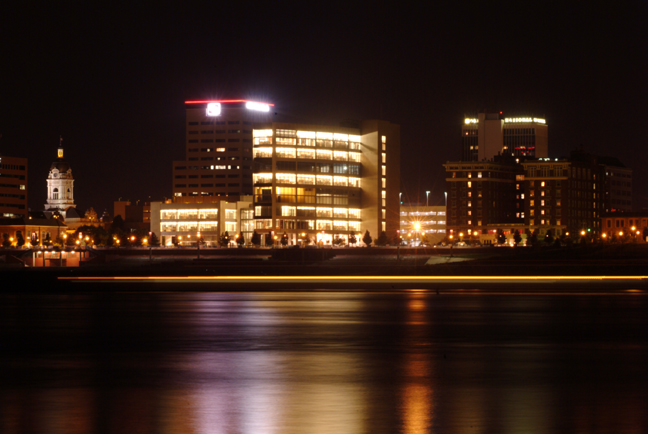October 18, 2015 – by Judy Siegel-Itzkovich in the Jerusalem Post

City lights, bright enough to light up the sky may have negative impacts on our health and our ecosystems. © 2008 BlairPhotoEVV
Living under constant and stable temperatures throughout the year due to air conditioning, heating and artificial lighting at night is liable to harm our health, food security and ecological systems, according to a international study by 63 researchers from 24 universities, including Tel Aviv University. The study was published in the British journal, Proceedings of the Royal Society B.
Professor Noga Kronfeld- Schor, a behavioral neuroscientist who heads the zoology department of TAU ’s life sciences faculty, said that these artificial environmental conditions create an “unending summer”.
Kronfeld-Schor explained, “The pace of life on our planet is [naturally] affected by seasonal changes. Plants and animals exhibit annual cycles in physiology, health, morphology, behavior and demography.
Our survey points to the fact that humans are not any different, and that we show significant annual rhythms in demography, health and well-being.”
She added that we usually do not pay attention to these seasonal changes because they are very slow.
“We feel our internal clock when we’re in jet lag, for example, but we pay less attention to the seasonal ticking – partly because we live in an artificial environment of ‘constant summers’ with steady temperatures and available lighting. But studies on other species prove that even after many years under set and artificial conditions, animals continue to ‘obey’ their seasonal clock, and statistical analyses show that humans are no different. We express different genes and are ill according to seasons – and are even violent and go to war according to seasons in the year.”
While the artificial environment does not cancel the season clock of humans, Kronfeld-Schor said: “We still don’t know how this environment affects our biological clock. We have a growing number of studies that point to animals losing their synchronization.
For example, migratory birds leaving one country are supposed to reach their target country on an exact date when there are enough hatching caterpillars to serve as a source of food.
The caterpillars time their hatching according to temperatures in the environment, but because of global warming, they do so before the birds arrive, so the birds die of hunger.”
The new article stresses the importance of better understanding of seasonal biology, especially based on disruptions caused by climate changes, the modern way of life and additional effects.
